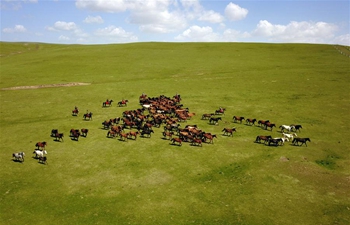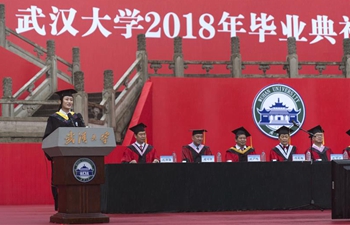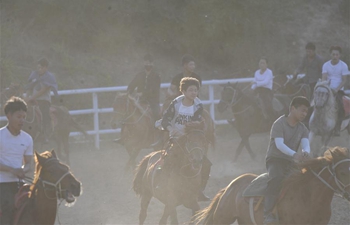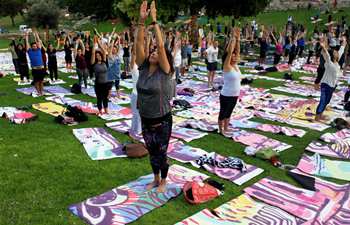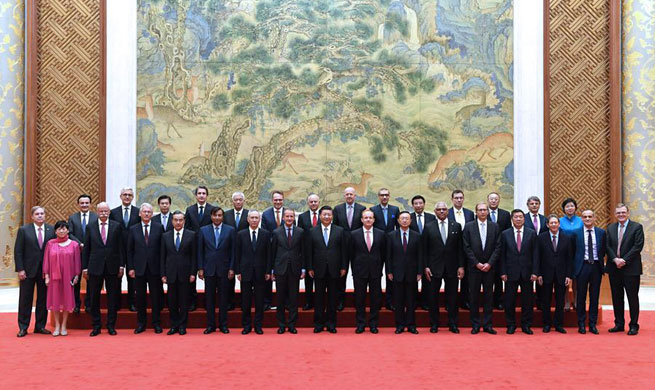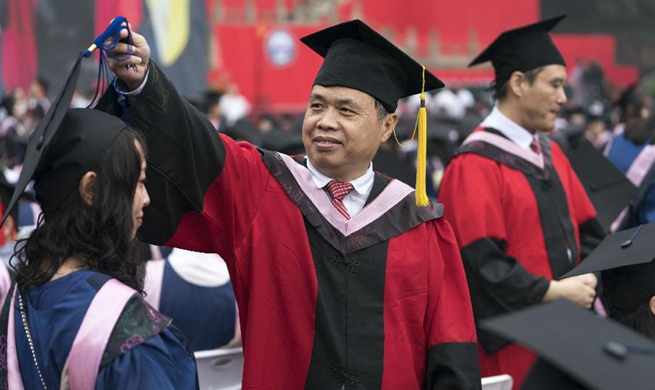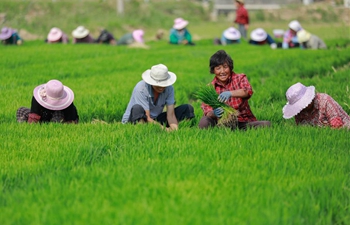HOHHOT, June 22 (Xinhua) -- Byindorzh wears a striped collared shirt with square buttons. Despite his look, he is a herder.
Unlike his nomadic ancestors who moved their yurts across the prairie to herd their flock, the 61-year-old in north China's Inner Mongolia Autonomous Region has adopted "new age" nomadism.
During the summer, he herds sheep on his 600-hectare grassland. From October until next May, he and his family live in his two-storey house in town.
"It's cool and has fresh air in summer, and in winter, we have hot water and a toilet that flushes," says Byindorzh.
With more income from herding and government subsidies to protect the prairie, an increasing number of herders in China have bought property in cities where they pass the winter in warmth and comfort.
For centuries, herders used to live in yurts and move seasonally to find the best grass for their livestock. It was not until the 1980s when they finally settled down, largely because the Chinese government allocated each household a fixed tract of grassland.
China has some 300 million hectares of prairie, and it is normal for a household to own hundreds of hectares of grassland.
To increase his income, Byindorzh raised the number of sheep from 90 to 300 between 1980 and 1990. The large flock, however, soon ate all the grass and sometimes had to trek several miles to find food.
"The sheep became too skinny to be sold at a high price, and the lambs sometimes starved to death as their mother couldn't produce milk," he recalls, adding that malnutritioned female sheep seldom give birth.
Due to overgrazing, prairies in Inner Mongolia became deteriorated, turning the once lush grassland into barren sand.
In 2000, the government launched a herding ban, forbidding herding until July every year and in some ecologically-fragile places, livestock were fully forbidden. Byindorzh's farm was within the former.
Following the ban, the local government started to re-seed the prairie. Byindorzh and his wife built fences to divide his farm into several tracts.
In spring, he raised the animals by feeding them, and the rest of the year, he herded them on different tracts of the grassland, so the rest of the tracts could continue to grow.
They also planted desert dates and licorice. The government granted him a subsidy to encourage him to do so.
With the grassland rehabilitated, the sheep became much fatter, and therefore, much more profitable.
The family receives an annual grassland subsidy of around 12,000 yuan (about 1,846 U.S. dollars), as well as a tree planting subsidy of 44,000 yuan. The licorice generates a revenue of about 100,000 yuan per year. His family's annual income reaches up to 300,000 yuan.
Five years ago, Byindorzh bought a house 90 kilometers away at the seat of the county level Hanggin Banner for 500,000 yuan and in 2016, purchased an SUV for 450,000 yuan, the third car ever bought by the family. He now hires a herder to take care of the sheep during winter.
According to local government workers, some 10 percent of herders have bought property in county seats in Hanggin and nearby banners.
With his new SUV, Byindorzh and his wife spent more than a month last year travelling to Tibet Autonomous Region and Shaanxi Province. This year, they are planning to visit the Alxa League to tour the desert.
"It's a life we never dreamed of," he says. Enditem





